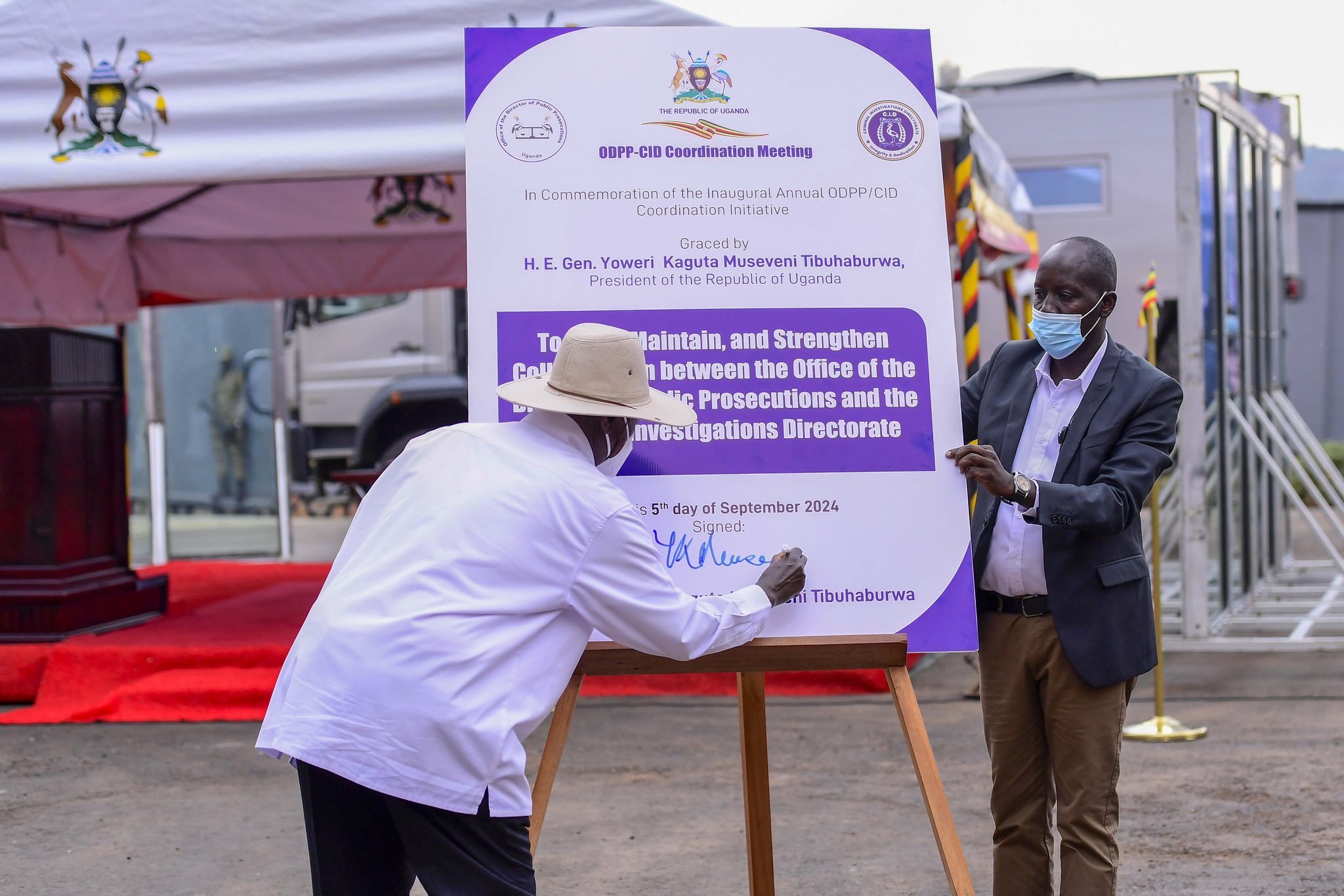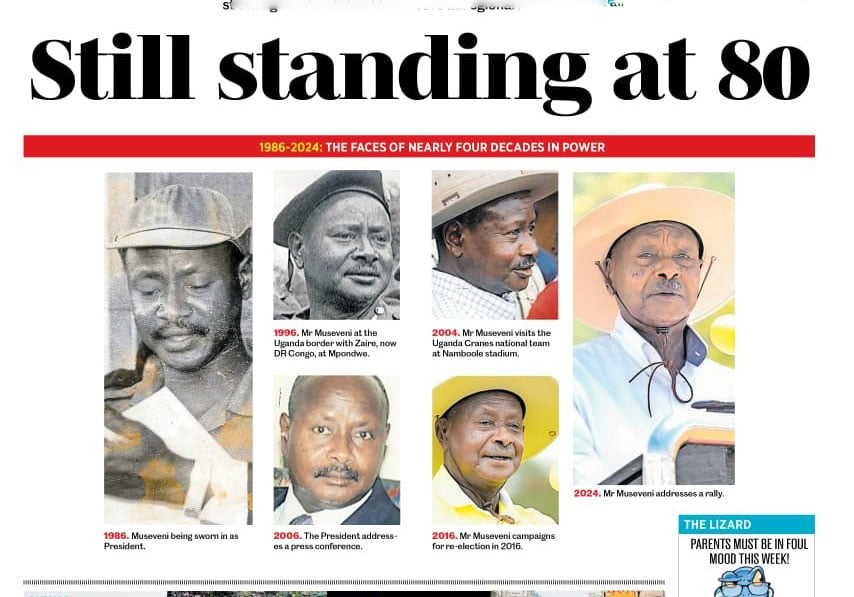Prime
Museveni laments failures in his anti-crime strategy

President Museveni closes the first annual meeting of the Office of the Director of Public Prosecutions (ODPP) and Criminal Investigations Department (CID) at the CID headquarters in Kibuli Kampala on September 5
What you need to know:
- Mr Museveni then turned to the implementation of the digital number plates.
- The Director of Public Prosecutions, Justice Jane Abodo, said they have put in place approaches to strengthen prosecutors and investigators in successful cases.
Talking tough while addressing Parliament, President Museveni issued nine strategic points to deal with insecurity in the country on June 20, 2018.
Among the nine points Mr Museveni outlined were the installation of CCTV cameras, the installation of electronic number plates, and the establishment of a modern forensic laboratory.
Boasting about the installation of the CCTV cameras on the roads, the President said from State House he was able to see a person easing himself on the roadside.
But six years later, Mr Museveni said the CCTV cameras had problems and the multi-billion project was not implemented well.
“For me, I was very excited with the cameras. Later on, I was told that ‘No, that cameras can only see during the day'. But the crime isn’t only committed during the day. So what is happening with the cameras?” President Museveni asked the director of ICT, Mr Felix Baryamwisaki, yesterday.
The head of State made the revelation during a conference organised to strengthen cooperation between the Criminal Investigations Directorate (CID) and the Office of the Director of Public Prosecutions to fight crime at CID headquarters in Kibuli, Kampala, yesterday.
Mr Baryamwisaki said they implemented the project very well and did good work, but later there were some mishaps caused by management issues.
“We implemented the project very well and every Ugandan was very excited and it did good work for Ugandans, but later, there were a few mishaps,” Mr Baryamwisaki said before the President interjected to know who caused the mishaps.
“Caused by [the] earthquake or what?” President Museveni said.
Mr Baryamwisaki responded: “Your Excellency, it was management issues, which have been solved and we are now back online. The problem made the system go back to around 60 percent while we were operating at 95 percent.”
President Museveni wasn’t done with Mr Baryamwisaki.
“How did you solve the issue of images at night?” President Museveni asked.
Mr Baryamwisaki said they worked with urban authorities to put up streetlights to enable the cameras to capture footage at night.
The President further demanded to know how footage is obtained at night on upcountry roads and highways where there are no streetlights.
Mr Baryamwisaki conceded that the problem hasn’t been resolved there. He said cameras can only cover 20 to 30 metres in total darkness.
There have been allegations of corruption in the CCTV project.
Mr Museveni then turned to the implementation of the digital number plates.
“Now, what happened to the digital number plates? I was excited about the digital number plates. Who is handling that on the technical side?” Mr Museveni asked. Mr Baryamwisaki didn’t have an answer. He passed on the question to the Minister of Security, Maj Gen (Rtd) Jim Muhwezi.
Mr Museveni asked Gen Muhwezi to tell him where the problem is with the digital number plates.
Gen Muhwezi said they have had a meeting with the investor to resolve them.
“There were a few problems, but yesterday we had a meeting. Now, the investor is ready to roll it out,” he said.
He added that the digital number plates system was used to track and recover a police vehicle that was stolen and trafficked to Kenya recently.
The Minister of Internal Affairs, Maj Gen (Rtd) Kahinda Otafiire, said there is a challenge with welfare, especially agencies under his ministry, which needs to be resolved.
The Inspector General of Police, Mr Abas Byakagaba, said they are bent on implementing the sub-county policing model, increasing the police numbers and reviewing the police standing orders to tackle indiscipline.
The Director of Public Prosecutions, Justice Jane Abodo, said they have put in place approaches to strengthen prosecutors and investigators in successful cases.
“We also have prosecution-guided investigations. And this has gone a long way because we see the results that most of the cases we have handled using this approach,” Justice Abodo said.




